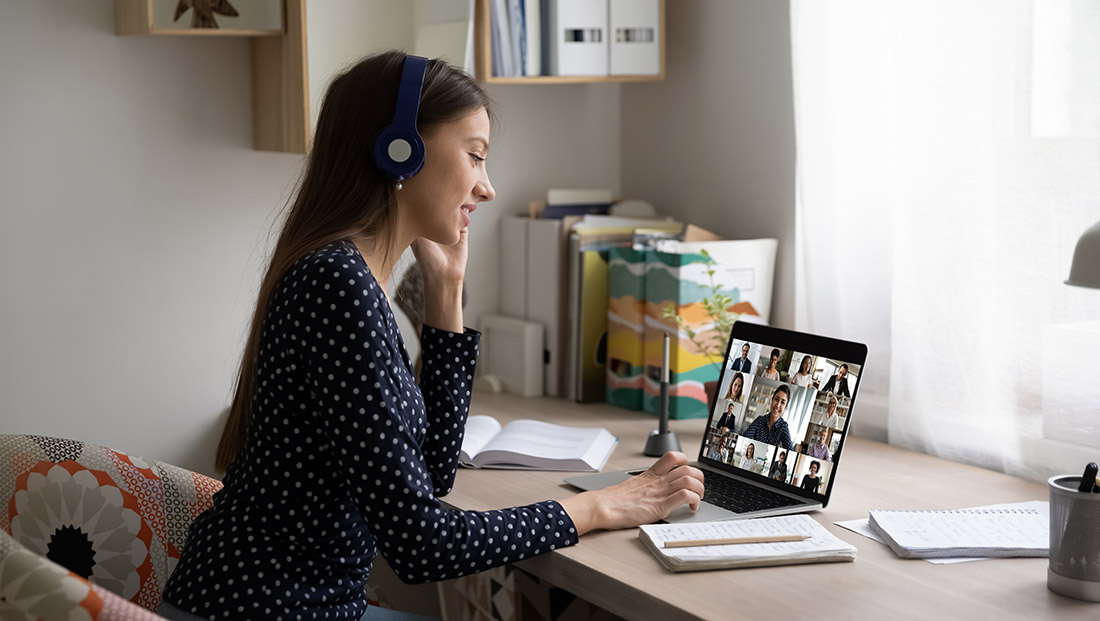New research from RMP Enterprise will help employers develop effective attraction strategies for 2021 and beyond.
Cast your minds back to 2019…campuses bustling with students, careers fairs galore, and we were able to chat to people face-to-face. What a very different world that was!
2020 forced us all to adapt and create virtual events and experiences to inspire students with the first steps in their careers.
After a year of pivoting to fully virtual attraction, we wanted to find out what students really thought of virtual events. So we did what we do best and asked them! We surveyed 1,600 students in RateMyPlacement’s network to find out what their experiences were of virtual events.
Hopefully these will be useful when you’re planning attraction strategies for 2021 and beyond.
Takeaway 1: Create time for conversations
We asked students what the best bits were of the virtual events and webinars they attended with employers, and 48% of them said Q&A sessions with employers, which was followed closely by employer presentations at 44%.
Students loved that they could ask employers questions, with 21% of students commenting on how much easier, quicker and less pressurised it was to communicate than at face-to-face events.
Timing is key, as we found that students’ engagement in booths at our virtual events was much greater after employers had presented on the main stage. This is the perfect time to hook in interested students, so it’s a good idea to bring more reps into your booth during this time to really maximise your ROI and engage students with your brand and opportunities.
Takeaway 2: Accessibility
Virtual events have opened up the reach for employers, but how do students feel about this? The feedback was overwhelmingly positive with students really valuing how accessible virtual events were, giving everyone the same opportunity to attend from wherever they are in the UK, regardless of background. Comments from students included:
“There’s no waiting around for someone to finish talking to an employer and it’s in the surroundings of your own home so it feels less intimidating.”
“Info is still the same, just a different setting. I have quite bad social anxiety so virtual events do ease the anxiety.”
“Networking has felt easier in the online format as it is easier to ask a question and from signing up you can stay in touch.”
The research told us that 76% of non-Russell Group students had attended at least one virtual employer-specific event, in contrast to 60% of Russell Group students. With a higher proportion of students identifying as Black, Asian & Monitory Ethnic at non-Russell group universities, virtual events can be an ideal route to engage with a more diverse audience, all from the comfort of your own home (or office!).
It wasn’t all positive feedback though, with students commenting on ‘poor internet connections’ being the biggest frustration factor. Also one student said, “or someone like me who is hard of hearing, it’s incredibly difficult to hear through a tinny speaker”. So even though for the majority, virtual events were accessible, it is worth noting that certain groups of students were disadvantaged.
Takeaway 3: Students miss face-to-face engagement
Even though we’ve just talked about the positives of virtual events, what was clear in the research is how much students miss the face-to-face approach.
Over half of students (53%) said that virtual events are worse or much worse than face-to-face engagement. That said, 47% of students thought virtual events were much better, better or about the same, proving how viable they have been to support an enforced digital-only campaign.
When asked about how comfortable they’d feel about attending a face-to-face event in Autumn, the majority (56%) of students said they would feel comfortable. However, 35% of students said they would only feel comfortable depending on other factors such as vaccines and measures taken.
So, while just over half of students do feel safe to return, there are still a number of factors outside of our control that could affect the numbers of students attending face-to-face events.
If you are going to invest in face-to-face engagement for autumn, consider smaller targeted events and outdoor pop-ups with plenty of hand sanitiser! Using QR codes to ensure touch free signups and capturing data in a safe way will also be key.
Takeaway 4: The future is hybrid
One of the most important questions we asked students was ‘Would you like virtual events and webinars to continue in the next academic year?’ The majority (55%) of students said that they’d prefer a mix of face-to-face and virtual events, with 26% saying yes and 19% saying no.
This is great news as it suggests that virtual events are here to stay, and have been a positive outcome of the pandemic, however students miss face-to-face so a hybrid approach to student attraction where possible, is recommended.


0 Comments